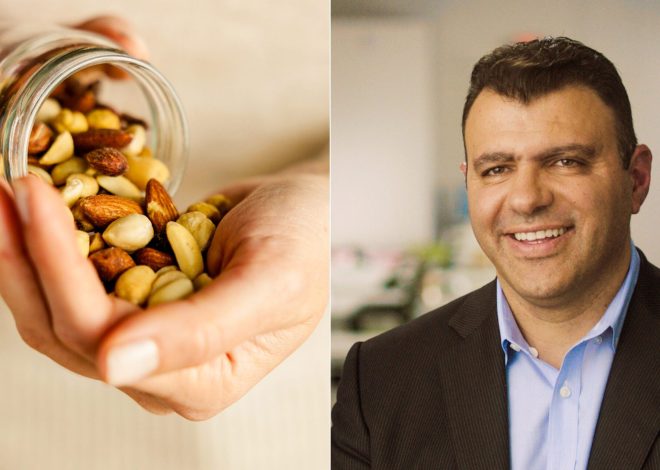
How plant-based foods are linked to heart disease
This is a machine-generated translation of an article from Spektrum.de’s international partners. It has been reviewed by us but not edited. You are welcome to give us your feedback at the end of the article.
Recently, headlines have denounced plant-based fake meats – such as vegetarian sausages and textured plant proteins – as unhealthy, claiming that their consumption is linked to an increased risk of cardiovascular disease and death. However, a closer look at the study underlying these claims suggests a more nuanced picture.
The real culprit is indeed “plant-based” processed foods in general, not meat substitutes in particular, according to the study that has made headlines. But there is an important caveat: Plant-based foods include some you might not expect, such as chocolate-covered cookies, frozen pizza and sodas. The study, published earlier this month in the journal Lancet Regional Health – Europe, linked plant-based ultra-processed foods to an increased risk of cardiovascular disease and death.
However, the proportion of meat substitutes in the study participants’ total food consumption was very small, and the study was not designed to determine exactly which foods were most likely to cause health consequences. Nevertheless, the study’s ambivalent interpretations show how complex nutrition research can be, critics say: The food definitions used by scientists do not always reflect what other people understand by a plant-based diet.
Foods are said to be highly processed when they undergo industrial processing that significantly alters the original ingredients. These foods have come a long way before they end up on your plate. Staple foods like instant noodles and store-bought biscuits typically go through several stages of processing that break down the internal structure of their raw ingredients. They are then reassembled in a form that prioritizes convenience and taste — often with a mix of additives designed to improve appearance and shelf life. As a rule of thumb, “think of a food you couldn’t make in your own kitchen” — either because of its chemical components or because of the industrial machinery required to prepare it, says Evangeline Mantzioris, a researcher and dietitian at the University of South Australia who was not involved in the study.
In nutrition research, including this much-discussed study, a system known as the NOVA classification system is used as a benchmark. This classifies foods according to the degree to which they have changed from their natural state, from unprocessed to highly processed. Most foods can be categorised intuitively. Broccoli or beans are not considered highly processed, but breakfast cereals and canned soups are. Others, however, are not immediately obvious. For example, the new study by the Lancet Regional Health – Europe listed beer and wine as examples of non-highly processed drinks, while spirits such as vodka are considered highly processed.
The idea behind this classification in food research is that processing foods could fundamentally change the way they interact with the body and affect health, says Fernanda Rauber, lead author of the new study and a nutritional epidemiologist at the University of São Paulo in Brazil. “The health effects of foods do not only result from the sum of their nutritional functions,” she says. “The way foods are combined, prepared and consumed as a meal also plays a crucial role in their health effects.”
In the study, Rauber and her colleagues linked what people ate in a day with their hospital and death records related to cardiovascular disease. The researchers used data from more than 100,000 adults in the UK’s BioBank – a large database that tracks the health, lifestyle and genetic information of volunteers aged 40 to 69 in the UK.
The plant-based category in the study was something of a catch-all, says Gunter Kuhnle, a nutritional epidemiologist at the University of Reading in England who was not involved in the study. When he first read the title of the study, Kuhnle assumed it referred to plant-based meat alternatives, plant-based beverages or plant-based milks – in other words, only replacements for animal-based products. The press release also reinforced this interpretation, explicitly stating in the first paragraph that products “designed to replace animal-based foods” – such as plant-based sausages, nuggets and burgers – were associated with a higher risk of cardiovascular disease.
But the story goes further: Meat alternatives were rated alongside highly processed foods that are less intuitive to label as plant-based, including bread, cakes, sugary sodas, potato chips and ketchup – foods that don’t immediately spring to mind for most people when they think of a plant-based diet, Kuhnle says. Such a broad categorization was “not wrong,” he says. “It was just easy to misunderstand.”
The study found that the more highly processed foods people consumed, the greater their chances of developing or dying from heart disease. These results, Kuhnle says, were “not really surprising,” given the inclusion of “plant-based” foods that many dietary guidelines recommend consuming in moderation – like sugary foods or drinks.
In terms of total energy intake, a ten percent increase in consumption of plant-based, highly processed foods increased the risk of cardiovascular disease by five percent and the likelihood of dying from the disease by twelve percent (this included foods such as cookies and chocolate bars, but also tofu and tempeh). The opposite was also true: for every ten percent increase in consumption of non-highly processed but still plant-based foods such as pasta, beans and potatoes, the risk of cardiovascular disease decreased by seven percent and mortality by thirteen percent.
The problem is that this type of analysis cannot show whether one particular food is worse than another because it evaluates groups. In addition, tofu, tempeh and textured plant protein products, which were categorized as plant-based, highly processed foods, accounted for only a fraction of the total calories consumed – about 0.2 percent in total – while other foods such as packaged bread accounted for 10 percent. “We cannot draw any specific conclusions about this particular type of food,” Rauber says in response to the way the study was portrayed in some media reports.
Nonetheless, the findings add to a growing body of evidence linking highly processed foods to negative health effects. A recent review of several studies, which included data from a total of almost ten million people, found that eating more highly processed foods was associated with a range of health risks, including cardiovascular disease. The health effects of imitation meat are less clear. A recent study showed that vegetarians and vegans consume more highly processed foods compared to meat eaters and that they prefer unhealthy plant-based foods to healthier alternatives, but the long-term health effects of such dietary patterns have not been investigated. On the other hand, highly processed meat itself, such as sausage and salami, has been linked to higher overall mortality and particularly to colon cancer.
Exactly how ultra-processed foods can cause such health consequences is still unclear. Some research points to the high levels of salt, sugar and fat in these foods as the cause, while other studies suggest that processing a food – breaking down its natural structures and turning them into something new – could affect the body in ways we don’t yet understand. Chemical additives such as the widely used flavor enhancer monosodium glutamate (MSG) and contaminants that can occur when ultra-processed foods are fried, baked or fermented, such as acrolein, could also affect appetite and health. Acrolein in particular has previously been linked to a higher risk of cardiovascular disease.
Rauber cautions that the study was unable to distinguish between cause and effect. In reality, people’s eating habits are inconsistent and tend not to stick to a strict pattern over a long period of time – making it difficult to design studies that allow conclusions to be drawn about whether certain diets cause disease. But given the number of observational studies available, “there is a huge amount of evidence (…) telling us that highly processed foods are probably not the best for our health,” says Mantzioris. Rauber’s study took into account other variables such as the effect of family history, physical activity and ethnicity on a person’s risk of developing heart disease.
Kuhnle says a highly processed food is not necessarily a good or bad choice, but should be considered in the broad context of a person’s diet, noting that the health effects of highly processed foods don’t develop overnight.

Ethel Purdy – Medical Blogger & Pharmacist
Bridging the world of wellness and science, Ethel Purdy is a professional voice in healthcare with a passion for sharing knowledge. At 36, she stands at the confluence of medical expertise and the written word, holding a pharmacy degree acquired under the rigorous education systems of Germany and Estonia.
Her pursuit of medicine was fueled by a desire to understand the intricacies of human health and to contribute to the community’s understanding of it. Transitioning seamlessly into the realm of blogging, Ethel has found a platform to demystify complex medical concepts for the everyday reader.
Ethel’s commitment to the world of medicine extends beyond her professional life into a personal commitment to health and wellness. Her hobbies reflect this dedication, often involving research on the latest medical advances, participating in wellness communities, and exploring the vast and varied dimensions of health.
Join Ethel as she distills her pharmaceutical knowledge into accessible wisdom, fostering an environment where science meets lifestyle and everyone is invited to learn. Whether you’re looking for insights into the latest health trends or trustworthy medical advice, Ethel’s blog is your gateway to the nexus of healthcare and daily living.



